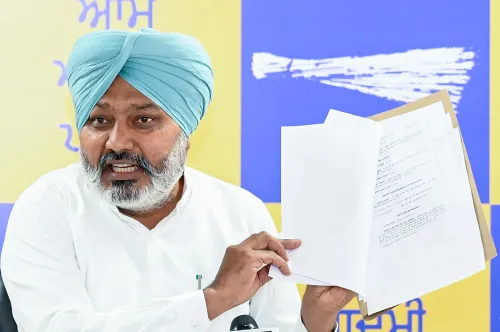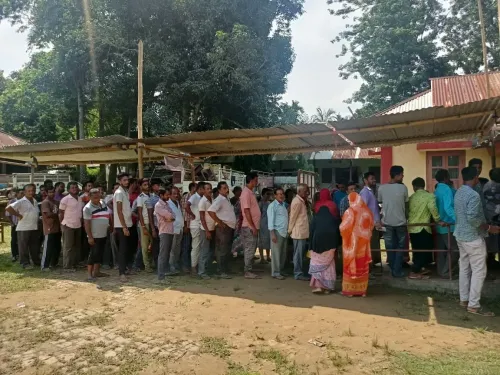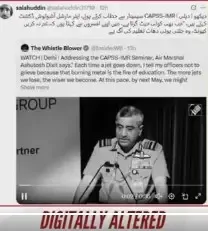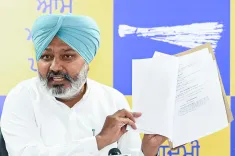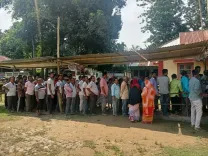Did the Indian Army Win the 1971 War While Indira Gandhi Lost It at the Negotiating Table?

Synopsis
Key Takeaways
- BJP criticizes Congress for undermining military achievements.
- Indira Gandhi's negotiations after victory are questioned.
- Field Marshal Sam Manekshaw's strategy was crucial to military success.
- 93,000 Pakistani soldiers' treatment highlighted domestic issues.
- Historical decisions continue to impact current politics.
Bengaluru, May 15 (NationPress) The BJP has criticized the Congress party for allegedly diminishing the significance of Operation Sindoor and for emphasizing the triumph of the Indian armed forces under the leadership of former Prime Minister Indira Gandhi during the 1971 war.
The BJP asserts that although the Indian forces emerged victorious on the battlefield, Indira Gandhi faltered at the negotiating table.
Speaking to the media at the BJP headquarters in Bengaluru on Thursday, BJP's National General Secretary and Karnataka In-Charge, Radha Mohan Das Agarwal, stated: "In 1971, two battles were fought. One on December 3, 1971, by the Indian Army, and another on July 2, 1972, at Shimla, where political discussions occurred between the late Prime Minister Indira Gandhi and Pakistan's then Prime Minister Zulfikar Ali Bhutto, during which Indira Gandhi failed to achieve anything beneficial for India."
Agarwal further commented: "If it weren't for Field Marshal Sam Manekshaw, we might have faced defeat in the 1971 conflict. Indira Gandhi wished to initiate military action sooner, but General Manekshaw cautioned her that a premature entry into war would lead to a humiliating setback. He insisted that the conflict should proceed under the Army's conditions and even threatened to resign."
Indira Gandhi ultimately had to follow Manekshaw's counsel, and the war proceeded according to his strategic framework.
“While the Indian Army achieved a momentous victory on the battlefield, Indira Gandhi wasted the opportunity at the negotiation table. The Army was victorious, but she was vanquished. The 93,000 Pakistani soldiers who surrendered were treated with undue leniency in India for five months, while our economy bore the brunt. We gained nothing from Pakistan.”
India captured over 15,000 square kilometers of territory in West Pakistan, which was subsequently returned.
“Approximately five crore Bangladeshi migrants, who continue to pose challenges today, particularly in West Bengal, were not repatriated. We released 93,000 Pakistani prisoners of war but failed to recover our 56 soldiers taken captive by Pakistan. Whatever the Army accomplished in 1971, Indira Gandhi squandered in the subsequent year,” he claimed.
When questioned about Madhya Pradesh Minister Vijay Shah's controversial remarks regarding Colonel Sophia Qureshi, Agarwal stated that the BJP does not seek guidance from anti-national entities, asserting that if resignations are mandated for every statement, senior Congress leaders like Shashi Tharoor and P. Chidambaram would not escape scrutiny.
“We would first need to ask Rahul Gandhi to resign. Concerning Vijay Shah's comments, he has already apologized twice, yet the party has not yet forgiven him. Stay tuned.”
He expressed disappointment that Karnataka Chief Minister Siddaramaiah continues to make remarks against Hindus and the nation, framing policies accordingly.
“I am, however, gratified that Deputy Chief Minister D.K. Shivakumar does not seem to endorse such views and appears to support the Indian armed forces,” he concluded.

